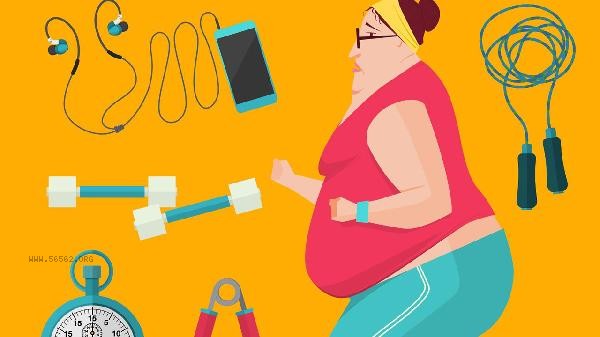constipation during weight loss can be alleviated by adjusting dietary structure, increasing dietary fiber intake, moderate exercise, maintaining sufficient hydration, and following a regular schedule. Constipation may be related to factors such as imbalanced diet, lack of exercise, insufficient water intake, dysbiosis of gut microbiota, and excessive stress.

1. Adjust dietary structure
Reduce the intake of refined carbohydrates and increase low glycemic index foods such as whole grains and legumes. To avoid excessive dieting and insufficient food residue, ensure a daily intake of 300-500 grams of vegetables and 200-350 grams of fruits. Choosing fermented foods rich in probiotics, such as sugar free yogurt, can help improve the intestinal environment.
2. Increase dietary fiber
Daily intake of 25-30 grams of dietary fiber, with priority given to green leafy vegetables such as broccoli and spinach, as well as skinned fruits such as apples and pears. Moderate consumption of soluble fiber rich foods such as chia seeds and flaxseeds is recommended, but it should be accompanied by sufficient drinking water to avoid exacerbating constipation.
3. Moderate Exercise
Maintain moderate intensity exercise for at least 30 minutes every day, such as brisk walking, swimming, or yoga. Abdominal massage combined with Kegel exercise can enhance intestinal peristalsis function. It is recommended to massage the abdomen clockwise for 5-10 minutes on an empty stomach in the morning.

4. Keep hydrated
Daily water intake should reach 1500-2000 milliliters. Drinking 300 milliliters of warm water on an empty stomach in the morning can stimulate gastrointestinal reflexes. Avoid excessive consumption of diuretic drinks such as coffee and strong tea, and supplement electrolyte water appropriately to maintain fluid balance.
5. Establish a regular schedule for defecation, and it is recommended to try defecation within 2 hours after waking up in the morning or after meals. Ensure 7-8 hours of high-quality sleep and avoid staying up late causing autonomic nervous system disorders that can affect intestinal function. You can relieve weight loss pressure through meditation and other methods. When constipation occurs during weight loss, laxatives such as lactulose oral solution and polyethylene glycol 4000 powder can be used for a short period of time, but must be used under the guidance of a doctor. Long term constipation accompanied by symptoms such as abdominal pain and bloody stools should be promptly diagnosed with organic diseases. Daily consumption of fruits rich in oligosaccharides such as dragon fruit and kiwi fruit, combined with abdominal breathing training, helps establish regular bowel habits. Be careful to avoid relying on stimulant laxatives, and it is recommended to control the weight loss rate at 0.5-1 kg per week.









Comments (0)
Leave a Comment
No comments yet
Be the first to share your thoughts!